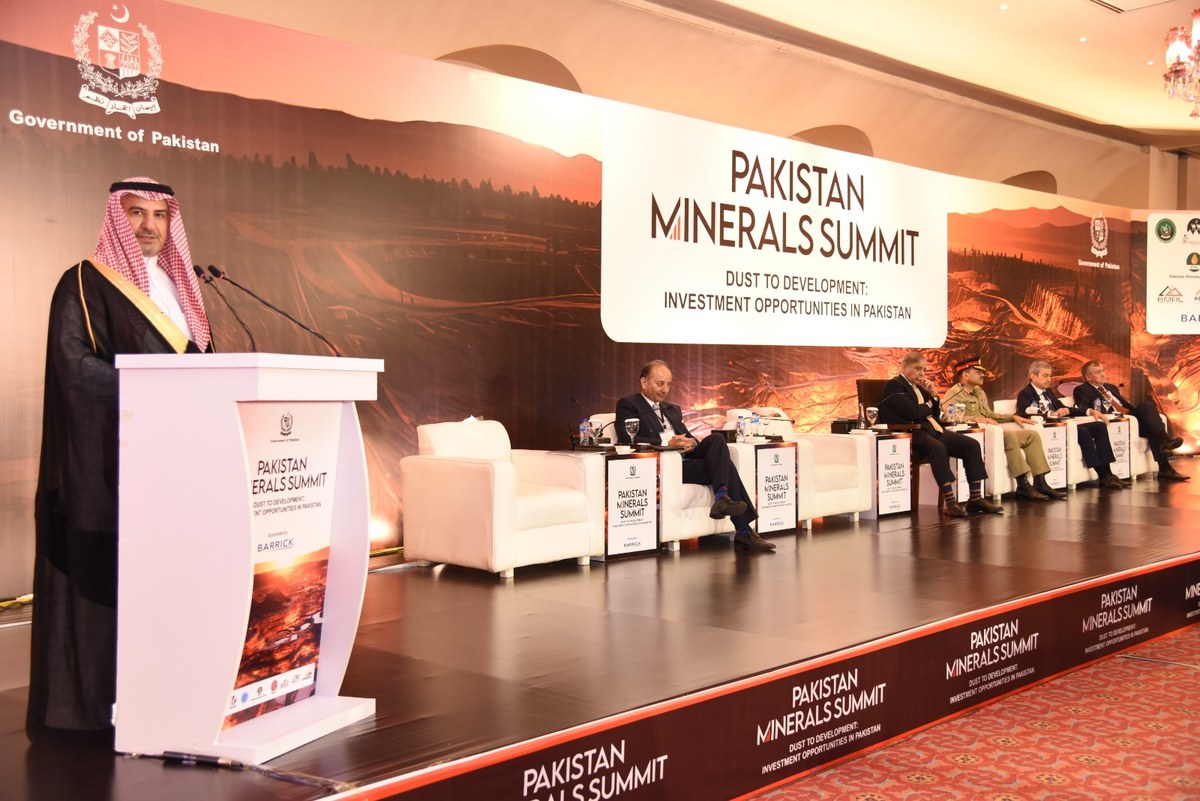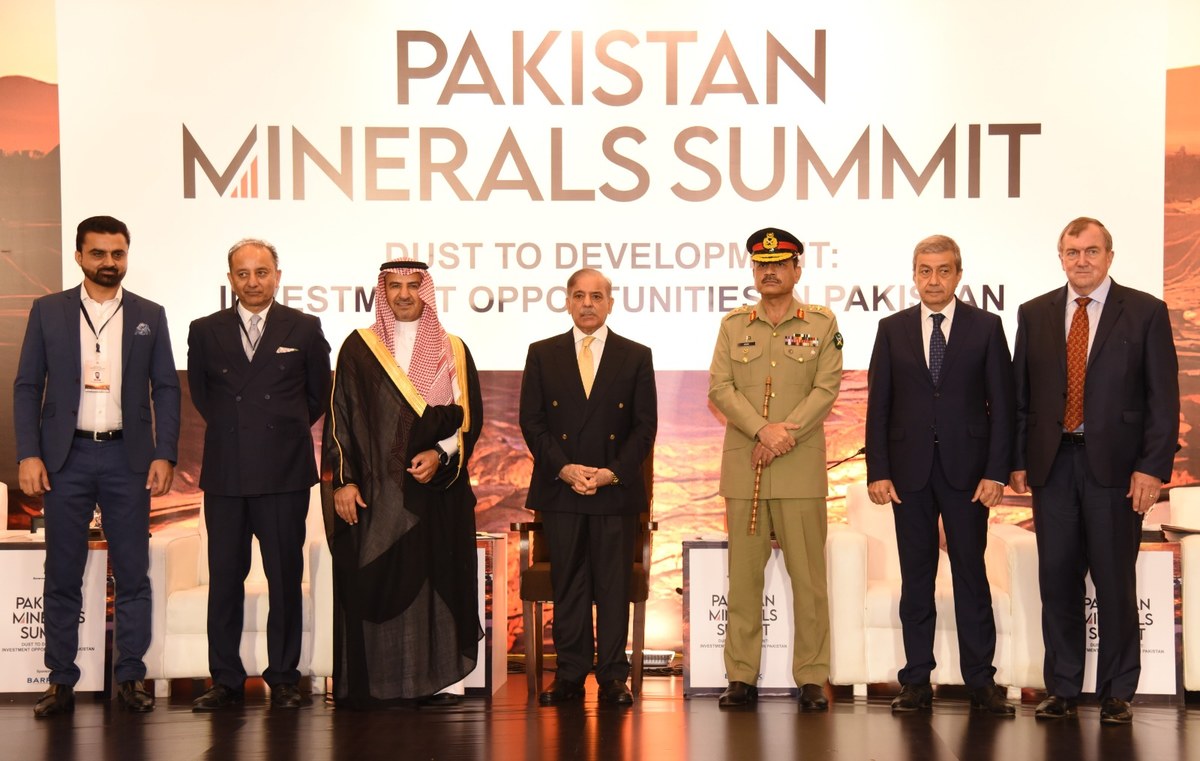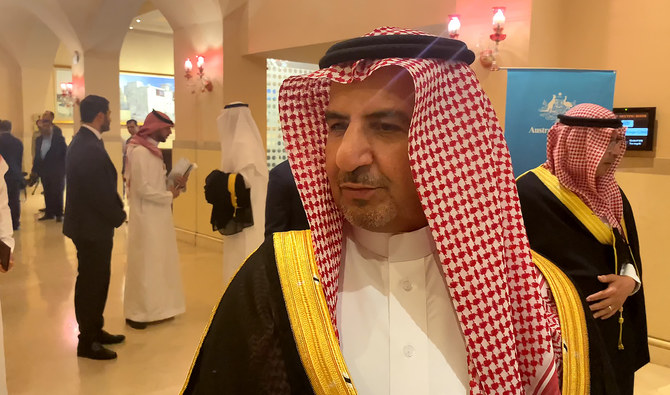ISLAMABAD: An important delegation from the kingdom arrived in Pakistan on Tuesday to explore investment opportunities in the South Asian country’s mining sector, aiming to tap into Pakistan’s $6 trillion estimated worth of mineral deposits, Saudi Vice Minister for Mining Affairs, Engineer Khalid bin Saleh Al-Mudaifer said.
The Saudi delegation, led by Al-Mudaifer, attended Pakistan’s first dedicated summit on minerals in Islamabad, where Prime Minister Shehbaz Sharif and Pakistan’s army chief spoke in front of a gathering of foreign investors, diplomats, and international dignitaries. The summit was organized under the umbrella of the Special Investment Facilitation Council (SIFC) that Pakistan set up in June to attract foreign investment.
“We are here with a big delegation from Saudi Arabia to explore mineral investments,” Al-Mudaifer told Arab News on the sidelines of the summit. He hoped that with unwavering determination, the strategies proposed in the summit would lead to success, and in the future, ensure a thriving mining sector in Pakistan.
“The [Saudi] government is mandated to support, help, bring investment and facilitate that investment into Pakistan to build into the relationship between us,” Al-Mudaifer said. “And therefore, we brought our companies here, the Ma’aden, the Manara and other companies to attend and facilitate discussion with their counterparts.”

Saudi Vice Minister for Mining Affairs, Engineer Khalid bin Saleh Al-Mudaifer speaks at the Pakistan Mineral Summit in Islamabad on August 1, 2023. (PID)
He said though Pakistan has $6 trillion estimated worth of mineral deposits, the country also has the potential of 240 million people. “The people of Pakistan is the wealth of Pakistan and in addition, the expertise, the locations, the minerals,” he said. “A new era is going to start in Pakistan. We congratulate Pakistan on the establishment of the SIFC that will help major investment,” he added.
Addressing the summit earlier, the minister said Pakistan and Saudi Arabia not only enjoy historical but deep religious and cultural ties as well. He said both countries had also expanded their reach in bilateral trade and investment domains.
Al-Mudaifer said mineral resources have played a crucial role worldwide in promoting trade, creating jobs and in the overall economic growth of several countries.
“Many macro factors are driving the need for new mining jurisdictions and the future will be mineral intensive,” he said, adding that overall, mineral production must increase at least six-fold to meet the demand for clean energy technologies.
“Pakistan is blessed with vast mineral resources and is home to various mineral deposits, including copper, gold, sulfur, lead, and zinc which will continue to be an essential source of economic development for Pakistan,” he added.
The minister said under the Saudi Vision 2030, the kingdom is implementing new programs and trillion-dollar giga-projects to achieve economic transformation in its bid to become a leading industrial powerhouse and global logistic hub, maximizing the value of its mining and energy sectors.
He said Saudi Arabia was currently the world’s fourth-largest net importer of minerals with giga-projects and its industrial transformation initiatives were expected to triple the local demand for minerals.

Pakistan's prime minister Shehbaz Sharif, center, along with army chief General Syed Asim Munir, third right, and foreign dignitaries attend Pakistan Mineral Summit in Islamabad on August 1, 2023. (PID)
“That’s why the Saudi Public Investment Fund, and our national mining company, Ma’aden, created Manara Minerals which was announced during the Future Minerals Forum in Riyadh last January, to invest in mining assets globally and secure strategic minerals that are essential for Saudi Arabia’s economic development, as well as the resilience of the global supply chains,” he added.
He said Saudi Arabia wants to enable the development of responsible mineral value chains in Pakistan by attracting investment, deploying digital and advanced technologies, and applying high standards on sustainability performance.
“Let us unite our efforts to harness the full potential of Pakistan’s, Saudi Arabia’s, and the region’s mineral sector, as together, we can pave the way from dust to development, transforming our nation into thriving hubs of mineral resources, economic prosperity, and sustainable growth,” Al-Mudaifer said.
The Saudi minister invited Pakistan to the 2024 Future Minerals Forum 2024 scheduled to be held at Riyadh in January 2024.
“Together, we will reshape the future of mining not only in Pakistan but in the world,” he added.














